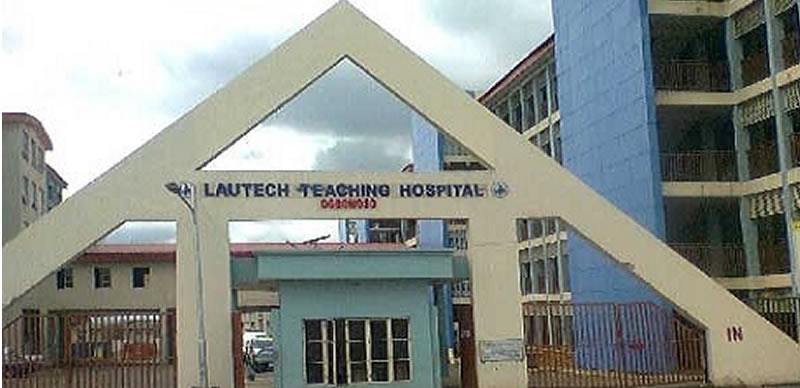The resident doctors at Ladoke Akintola University of Technology Teaching Hospital (LAUTECH) in Ogbomoso, Oyo State, Nigeria, commenced an indefinite strike on July 29, 2025, citing the failure of the hospital management and the state government to address their longstanding demands. This action followed a three-week ultimatum issued to the hospital’s Chief Medical Director, Prof. Olawale Olakulehin, on July 8, 2025. The ultimatum itself followed a one-month strike suspended in April 2025, with the expectation that their concerns would be addressed during the intervening period. Despite acknowledging some progress, particularly the payment of upgrade arrears and examination/update course fees, the doctors expressed deep dissatisfaction with the lack of action on several critical issues.
Central to the doctors’ grievances is the non-implementation of the new minimum wage, effective from January 2025. While other healthcare workers in the state have received the adjusted wages, the resident doctors at LAUTECH have been excluded, creating a significant pay disparity. This discrepancy has fueled resignations and hampered the hospital’s ability to attract new medical professionals, placing an even heavier burden on the remaining staff. Further compounding the issue is the non-disbursement of the Medical Residency Training Fund, a crucial component of their professional development and a right enshrined in the Medical Residency Training Act. The absence of these funds hinders the doctors’ ability to pursue specialized training and ultimately affects the quality of healthcare services provided at the hospital.
The doctors also highlighted the non-payment of accoutrement allowance, a provision intended to cover the costs of essential work-related items. This allowance is crucial for maintaining professional standards and ensuring that doctors have the necessary resources to perform their duties effectively. In addition to these financial concerns, the doctors pointed to the dire state of the call rooms, which they described as inadequate and in dire need of renovation. These rooms serve as resting areas for doctors on call, and their poor condition further underscores the lack of investment in the well-being of medical personnel at LAUTECH. The cumulative effect of these unresolved issues created a sense of profound frustration amongst the resident doctors, leading them to conclude that an indefinite strike was the only recourse left to them to compel the hospital management and the state government to address their concerns.
The doctors’ decision to embark on the indefinite strike was not taken lightly. They had previously suspended a month-long strike in April 2025, demonstrating their willingness to engage in dialogue and find a resolution. The subsequent three-week ultimatum served as a final opportunity for the management and government to demonstrate good faith and take concrete steps to meet their demands. However, the lack of substantial progress during this period ultimately led to the resumption of industrial action. The doctors maintained that they remained open to dialogue and a swift resolution, but emphasized that they would not return to work until tangible and acceptable measures were taken to address their concerns.
The doctors’ concerns extend beyond their personal welfare. They have consistently warned about the impending collapse of LAUTECH Teaching Hospital due to a combination of factors, including mass staff exodus, poor remuneration, and a perceived lack of government support. In an open letter to Governor Seyi Makinde earlier in July, they painted a grim picture of the hospital’s situation, revealing a drastic reduction in the number of resident doctors from nearly 270 to fewer than 65. This alarming decline in staffing levels has serious implications for the hospital’s capacity to provide adequate healthcare services to the community it serves.
The resident doctors’ strike at LAUTECH Teaching Hospital highlights a broader crisis in Nigeria’s healthcare system. The chronic underfunding, inadequate infrastructure, and poor remuneration of healthcare professionals have led to a brain drain, with many doctors seeking better opportunities abroad. This exodus of skilled medical personnel further exacerbates the challenges faced by hospitals like LAUTECH, leaving them struggling to provide essential services to patients. The situation underscores the urgent need for comprehensive reforms within the healthcare sector to address the underlying issues and ensure the long-term sustainability of quality healthcare delivery in Nigeria. The doctors’ strike serves as a poignant reminder of the critical role played by healthcare workers and the importance of investing in their well-being and professional development.


